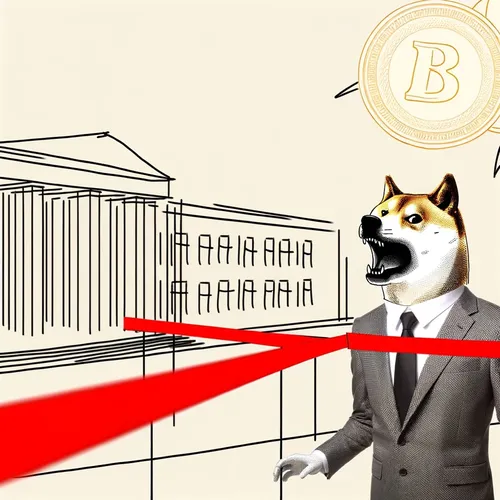DOGE Disrupts US Government Efficiency Sparking Controversy and Economic Challenges Under Elon Musks Leadership
- Author
- Quiet. Please
- Published
- Sat 09 Aug 2025
- Episode Link
- https://www.spreaker.com/episode/doge-disrupts-us-government-efficiency-sparking-controversy-and-economic-challenges-under-elon-musks-leadership--67313932
The Department of Government Efficiency, known as DOGE, has become one of the most hotly debated corners of American bureaucracy in 2025. Spearheaded by Elon Musk when it launched in January, DOGE set out to thin the ranks of federal agencies, slash red tape, and cut non-essential spending almost overnight. Some listeners have called this “bureaucracy barking mad” not only for the speed and impact but for DOGE’s uniquely disruptive approach. Just days ago, the DOGE token made headlines when it soared over 10 percent, a rally that mirrored DOGE’s drive for deeper reforms, but also reflected growing legal and political controversy.
Recent weeks have seen Democratic lawmakers launch investigations into DOGE’s hiring practices, questioning why its entire staff now holds exclusively political postings and warning that this risks undermining both agency neutrality and public accountability. These concerns reached a new level when a federal court ruled DOGE’s involvement in cancelling humanities grants as unconstitutional, arguing the Executive can’t override Congress’s spending authority. This ruling put a temporary leash on Musk’s rapid-fire changes by reasserting legislative oversight.
DOGE’s impact can be felt far beyond the political fray. As Mark Zandi, chief economist at Moody’s, explained, the downsizing at federal agencies—prompted by DOGE cuts—has led to slower and less accurate jobs reporting, with the Bureau of Labor Statistics revealing sharp downward revisions and setting off a chain reaction. President Trump recently fired the BLS commissioner over these figures, highlighting how even routine government tasks are now upended in the name of efficiency. Pantheon Macroeconomics found that DOGE cuts knocked about 0.3 percentage points off Q2 GDP growth, with federal non-defense spending falling more than 11 percent.
In parallel, DOGE is testing artificial intelligence to accelerate deregulation. According to Conference Board reporting, its new AI Deregulation Decision Tool aims to review hundreds of thousands of rules for repeal by January 2026, though legal experts warn this approach may falter in court if it excludes meaningful public input. Despite these complications, Pentagon spokespeople confirm DOGE reforms are not slowing down.
Listeners, DOGE is changing the very definition of government efficiency—sometimes too quickly for bureaucracy or courts to keep pace, and sometimes barking mad enough to rattle the economy and Congress alike. Thanks for tuning in, don’t forget to subscribe. This has been a quiet please production, for more check out quiet please dot ai.
For more http://www.quietplease.ai
Get the best deals https://amzn.to/3ODvOta
